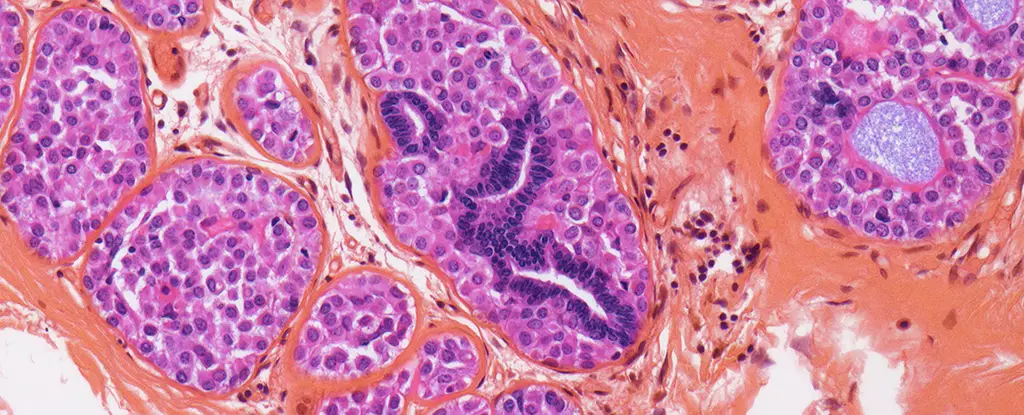In the ongoing quest to understand Alzheimer’s disease, multiple factors such as genetics, mental health, and lifestyle habits have traditionally dominated the conversation. However, emerging evidence suggests a surprising link between surviving breast cancer and a reduced risk of Alzheimer’s dementia. This revelation, drawn from an extensive South Korean study, challenges earlier assumptions and opens new avenues for exploring how cancer—and its treatment—might affect brain health over the long term.
Historically, cancer treatments have raised concerns about cognitive decline. The phrase “chemobrain” has been widely reported among survivors, describing troubling memory lapses and concentration difficulties post-therapy. Such reports naturally led to the expectation that cancer might exacerbate dementia risks. Yet, the latest findings complicate this narrative, showing a modest but statistically significant 8 percent lower incidence of Alzheimer’s in breast cancer survivors compared to individuals without cancer.
Parsing the Data: What the Numbers Reveal
This study stands out for its scale and rigorous follow-up, involving over 70,000 breast cancer patients matched against more than 180,000 cancer-free controls. Over an average of 7.3 years, researchers observed Alzheimer’s onset in 2.45 breast cancer survivors per 1,000 women per year, versus 2.63 in the non-cancer cohort. Although the absolute difference appears small, it carries meaningful implications when applied to large populations and extended timelines.
Crucially, the protective effect was more pronounced in women aged 65 and above, the demographic most at risk for Alzheimer’s. The data also hinted that radiation therapy might be a key player in this association; those who received radiation showed the greatest reduction in dementia risk. Over time, however, this benefit appeared to diminish, highlighting the complexity and transient nature of the relationship.
The Potential Role of Radiation Therapy: A Double-Edged Sword?
Radiation treatment is a cornerstone in breast cancer management, often pivotal to survival. Beyond its tumor-targeting capabilities, radiation may have nuanced effects on the brain’s microenvironment. Previous research notes its ability to reduce neuroinflammation, a factor increasingly linked to Alzheimer’s pathology. Could radiation inadvertently trigger neuroprotective processes that delay or lower cognitive decline?
While speculative, this hypothesis demands attention. It signals that cancer therapies might have unforeseen and beneficial neurological impacts, contrasting sharply with the prevailing fear of long-term cognitive harm from chemotherapy. This pivot invites us to reevaluate past research with fresh eyes, considering the balance between treatment side effects and potential neuroprotection.
Challenges in Interpreting Observational Links
Despite the allure of these findings, caution is warranted. The study’s observational design precludes definitive conclusions about cause and effect. Confounding variables—such as lifestyle differences post-cancer diagnosis, genetic factors, or health system engagement—could influence the observed association. For instance, breast cancer survivors often undergo regular health screenings and adopt healthier behaviors, inadvertently lowering their risk of dementia.
Additionally, the apparent disappearance of risk reduction over time raises more questions than answers. Is the protective effect truly transient, or does it reflect delayed detection or competing mortalities? Does the initial benefit of radiation wane as survivors age? These uncertainties underscore the need for long-term, mechanistically grounded research.
A New Paradigm for Survivorship and Cognitive Health
These insights challenge a toxic narrative that cancer and its treatments irrevocably damage cognition. Instead, they introduce a nuanced perspective where survival itself—and the modalities used to achieve it—might confer unexpected cognitive advantages, at least in relation to Alzheimer’s disease.
As breast cancer survival rates climb, largely due to early detection and improved treatments, understanding the full spectrum of long-term health consequences grows essential. The interplay between oncological therapies and neurodegenerative risks represents a frontier with profound clinical and scientific importance. Women who have experienced breast cancer might find optimism not only in remission but also in the possibility of a cognitive shield against one of aging’s most feared complications.
In the evolving landscape of medical research, this study reminds us that diseases traditionally viewed in isolation may actually intersect in complex and surprising ways, offering opportunities to rethink prevention and improve quality of life across multiple domains.


Leave a Reply